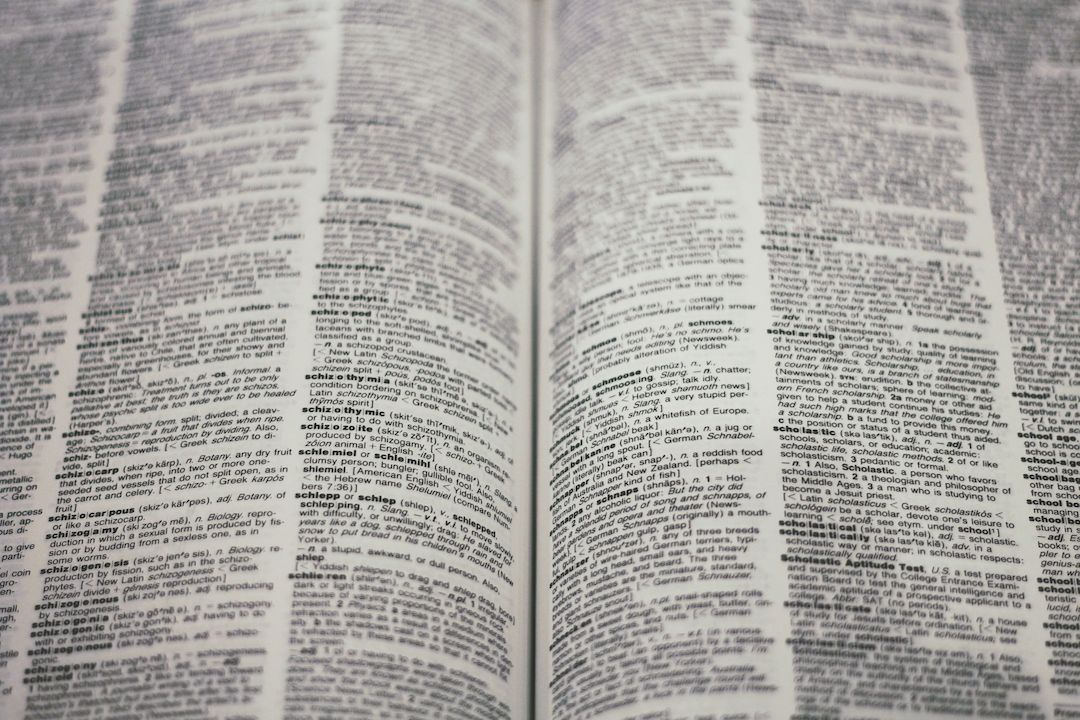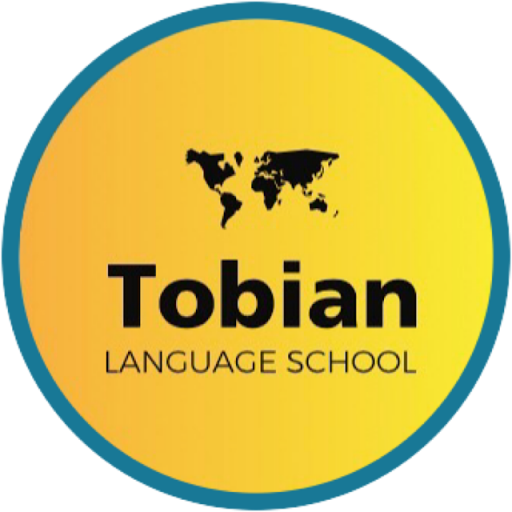15 Long Words In Dutch
- October 17, 2023
- By Tobias Woudt
The Dutch language is renowned for its extraordinary ability to construct intricate words by amalgamating and agglutinating smaller words.
These lengthy words encapsulate highly precise meanings, showcasing the Dutch people’s linguistic ingenuity.
In this exploration of Dutch vocabulary, we’ll delve into 15 long words in Dutch that the language has to offer, providing comprehensive explanations for each to unravel the fascinating complexity inherent to Dutch.

Table of Contents
Why Learn Dutch?
Learning Dutch offers a multitude of valuable advantages, and here’s why it’s worth your time:
Cultural Connection: Learning Dutch provides a gateway to the vibrant culture of the Netherlands and Belgium, allowing you to engage with Dutch literature, art, music, and cinema, gaining a deeper understanding of the cultural nuances of these regions.
Career Opportunities: Dutch is the official language in both the Netherlands and Flanders, and proficiency in Dutch can open doors to job opportunities in various industries, including technology, finance, and international business.
Travel and Tourism: Speaking Dutch can enhance your travel experience in beautiful cities like Amsterdam, Brussels, and Antwerp.
Academic Pursuits: Dutch universities offer a wide range of high-quality education programs, many of which are taught in English. Learning Dutch can enhance your academic options.
Linguistic Enrichment: Learning Dutch introduces you to a language that values precision and offers a unique linguistic experience through its compound words and rich vocabulary.
While Dutch may have some of the longest words in the world, it’s a language that rewards learners with access to rich culture, career opportunities, and the chance to explore a linguistic tradition known for its precision.
Whether you’re drawn to Dutch for professional, cultural, or personal reasons, embarking on the journey of learning this fascinating language can be a highly rewarding endeavor.

Explore 15 Long Words In Dutch With Explanations
Now, let’s dive into 15 of the longest Dutch words and uncover the unique complexity of the language:
1. Meervoudigepersoonlijkheidsstoornis (37 letters)
Translation: Multiple Personality Disorder
Explanation: This term describes a psychiatric condition known as Multiple Personality Disorder, where an individual displays multiple distinct identities or personalities.
2. Kindercarnavalsoptochtvoorbereidingswerkzaamheden (48 letters)
Translation: Preparatory Work for a Children’s Carnival Procession
Explanation: This colossal word encompasses all the preparatory tasks and activities involved in organizing a children’s carnival procession, showcasing Dutch’s penchant for creating highly descriptive compound words.
3. Ziekenhuisinrichtingsmaatschappij (31 letters)
Translation: Hospital Furnishing Company
Explanation: This word succinctly refers to a company specializing in providing furnishings for hospitals, exemplifying Dutch’s capacity for expressing specificity.
4. Onafhankelijkheidsverklaring (29 letters)
Translation: Declaration of Independence
Explanation: Frequently used in historical and political contexts, this term signifies a declaration of independence, akin to the American Declaration of Independence.
5. Grondwetswijzigingsprocedure (28 letters)
Translation: Procedure for Amending the Constitution
Explanation: This word outlines the formal process required to amend a nation’s constitution, highlighting Dutch’s efficiency in crafting lengthy yet precise words.
6. Vermogensbelastingaangifte (26 letters)
Translation: Wealth Tax Declaration
Explanation: In this term, ‘Vermogensbelasting’ means ‘Wealth Tax,’ and ‘aangifte’ means ‘Declaration,’ underscoring the Dutch language’s ability to create comprehensive expressions for legal purposes.
7. Tandartsstoelvervangingsproject (33 letters)
Translation: Dentist Chair Replacement Project
Explanation: This lengthy term signifies a project aimed at replacing dentist chairs, displaying Dutch’s knack for summarizing detailed project names in a single word.
8. Bosbessensapfabrikantenvereniging (34 letters)
Translation: Blueberry Juice Manufacturers Association
Explanation: This word designates an association of manufacturers specialized in blueberry juice production, exemplifying Dutch’s talent for constructing lengthy yet precise expressions.
9. Rijbewijsverlengingsaanvraagformulier (37 letters)
Translation: Driver’s License Renewal Application Form
Explanation: This comprehensive term refers to the application form necessary for renewing a driver’s license, emphasizing Dutch’s ability to convey intricate procedures in a single word.
10. Stadsontwikkelingsplannenbureau (31 letters)
Translation: City Development Planning Agency
Explanation: This word denotes an agency responsible for urban development planning within a city, showcasing Dutch’s conciseness in organizational nomenclature.
11. Tegenwoordigheidsbewustzijn (26 letters)
Translation: Present Awareness
Explanation: This word expresses the concept of being keenly aware or conscious of the present moment, illustrating Dutch’s ability to convey abstract concepts precisely.
12. Luchtverkeersleidingsapparatuur (29 letters)
Translation: Air Traffic Control Equipment
Explanation: This term succinctly represents the equipment used in air traffic control, demonstrating Dutch’s efficiency in technical terminology.
13. Verantwoordelijkheidsgevoel (26 letters)
Translation: Sense of Responsibility
Explanation: This word conveys the idea of having a strong sense of responsibility, highlighting Dutch’s proficiency in encapsulating nuanced emotions within a single word.
14. Overheidsschuldquote (24 letters)
Translation: Government Debt Ratio
Explanation: In this term, ‘Overheidsschuld’ means ‘Government Debt,’ and ‘quote’ signifies ‘Ratio,’ showcasing Dutch’s ability to convey financial terminology economically.
15. Taalwetenschapsstudentenvereniging (33 letters)
Translation: Linguistics Students Association
Explanation: This word identifies an association comprised of linguistics students, underscoring Dutch’s efficiency in formulating compound words for organizational titles.

Why Dutch Words Tend to Be Long
The propensity of Dutch words to be long can be attributed to several linguistic factors:
Compound Words: Dutch frequently forms compound words by combining smaller words, allowing for the creation of precise, contextually rich terms. These compound words eliminate the need for lengthy phrases.
Agglutination: Dutch utilizes affixes and suffixes to add meaning and specificity to words, contributing to their length. For instance, “Verantwoordelijkheidsgevoel” combines “verantwoordelijkheid” (responsibility) and “gevoel” (feeling) to convey the sense of responsibility.
Efficiency: Dutch words are designed to be efficient, enabling speakers to convey complex concepts concisely. Rather than using multiple words, Dutch employs a single, extended term.
Specificity: Dutch values precision in language. Longer words can capture intricate details and nuances that might require multiple words in other languages.
The length of Dutch words results from the language’s propensity for compounding, agglutination, and efficiency.
This linguistic characteristic enables Dutch speakers to express intricate meanings with remarkable brevity, making it a unique and fascinating aspect of the language.

Challenges of Learning Dutch
Learning a new language is always a rewarding endeavor, but it’s essential to be aware of the unique challenges that may arise when attempting to master the Dutch language.
Here are some factors that contribute to the difficulty of learning Dutch:
Pronunciation: Dutch pronunciation can be quite challenging for non-native speakers.
The language includes unique sounds and combinations that might not exist in your native tongue.
From guttural sounds like “g” and “r” to vowel combinations, mastering Dutch pronunciation takes time and practice.
Grammar and Word Order: Dutch has a complex grammatical structure, including gendered nouns, adjective agreements, and a specific word order.
Understanding these intricacies is essential for constructing grammatically correct sentences.
Dialects: Dutch is spoken in different regions, each with its own dialects and variations.
While standard Dutch is used for formal communication, regional accents and dialects can pose additional challenges for learners.
Verb Conjugation: Dutch verbs are conjugated based on tense, mood, and person, which can be intricate and require careful attention.
Idiomatic Expressions: Like any language, Dutch has idiomatic expressions and phrases that may not translate directly.
Understanding the context and usage of these expressions is vital for effective communication.
For a more in-depth exploration of the challenges and strategies to overcome them, you can check out our article, “Is Dutch Hard to Learn? A Comprehensive Guide for English Speakers“.
It offers valuable insights into tackling the complexities of the Dutch language and provides practical tips for language learners.
While Dutch may present some hurdles along the way, it’s important to remember that the rewards of learning this fascinating language far outweigh the challenges.
With dedication and the right resources, like joining our Dutch Language Courses, you can unlock the doors to Dutch culture, communication, and countless opportunities.

Conclusion
The Dutch language’s capacity to construct lengthy, complex words through compounding and agglutination is a testament to its linguistic richness and precision.
In this exploration, we’ve uncovered 15 long words in Dutch, each with its own unique meaning and complexity.
These words not only challenge the pronunciation skills of non-native speakers but also exemplify the Dutch language’s remarkable ability to convey complex ideas with brevity.
Join Us Today
Ready to embark on your journey of learning Dutch?
Whether you’re interested in culture, career opportunities, travel, academics, or linguistic enrichment, the Dutch language offers a multitude of rewards.
Explore our Dutch language courses and start your linguistic adventure today!

Tobias is a polyglot, traveller and founder of the Tobian Language School.
